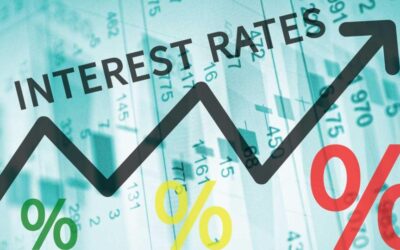Texas Based. Texas Experienced.
Reverse Mortgage for Texas Senior Homeowners
Are you a Texas senior homeowner seeking financial stability and independence? Lone Star Reverse Mortgage, Inc. is here to guide you through the process of converting your home equity into cash income – all with NO monthly mortgage payments!
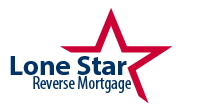
We are here to help you
Discover Financial Freedom with Texas’ Trusted Reverse Mortgage Specialists
Let Us Help You With A Texas Reverse Mortgage Today!
As we age, many of us face the challenge of having insufficient funds to meet our daily expenses, let alone unexpected medical bills or other financial emergencies. For seniors, this can be especially concerning, as a fixed income often means limited options for supplementing their finances. However, there is a solution that can provide Texas senior homeowners with peace of mind and improved financial stability: a reverse mortgage loan. At Lone Star Reverse Mortgage, Inc., we specialize in helping seniors navigate the complexities of reverse mortgages, offering expert guidance tailored to their unique needs. With our friendly and professional approach, we aim to empower Texas senior homeowners with the necessary knowledge and resources to make informed decisions that can alleviate financial stress and enhance their overall quality of life.


What is a reverse mortgage?
What is a Reverse Mortgage
A reverse mortgage is a type of home loan that allows homeowners aged 62 and older to convert a portion of their home equity into cash. Instead of making payments to the lender, the lender pays the homeowner, either as a lump sum, monthly payments, or a line of credit. The loan is typically repaid when the homeowner sells the house, moves out permanently, or passes away.
The amount homeowners can borrow depends on several factors, including their age, the current interest rate, and the home’s value. It’s essential to understand that throughout the duration of a reverse mortgage, homeowners retain the title and ownership of their home. However, they must continue to pay property taxes, homeowner’s insurance, and any home maintenance costs, as failure to do so may result in foreclosure.
One of the biggest benefits of a reverse mortgage is that you don’t have to make any monthly payments towards the loan. The loan only needs to be repaid when you sell your home, permanently move out, or pass away. Meanwhile, you continue to own and live in your home, but you must keep up with property taxes, homeowners insurance, and home maintenance. It’s also important to know that a reverse mortgage is a ‘non-recourse’ loan, which means you or your heirs will never owe more than what your home is worth when it’s time to repay the loan, even if your home decreases in value. This can provide a layer of protection for you and your family.
- Nature: It’s a type of home loan that allows homeowners to convert a portion of their home equity into cash.
- Payment Flow: Unlike a conventional mortgage where homeowners make payments to the lender, in a reverse mortgage, the lender makes payments to the homeowner.
- Accessing Funds: Homeowners can choose how they want to receive these funds: as a one-time lump sum, as monthly payments, or as a line of credit they can draw upon as needed.
- Repayment: The loan doesn’t need to be repaid as long as the homeowner continues to live in the house. It’s typically repaid when the homeowner sells the house, moves out permanently, or passes away.
- Ownership: Throughout the duration of the reverse mortgage, the homeowner retains the title and ownership of the house.
- Texas-Specific Features: Texas has certain specific protections and provisions for reverse mortgages. For instance, Texas reverse mortgages often include a “cooling-off” period, giving borrowers extra time after closing to fully consider their decision.
Call Us With Your Specific Questions
We will answer all of your questions in a no-pressure, no-obligation environment and help YOU decide if a reverse mortgage is in your best interest.
Call Us Today At – 972-388-3338
Home Equity Conversion Mortgage (HECM) in Texas
In Texas, the most common type of reverse mortgage is known as a Home Equity Conversion Mortgage (HECM). This is a federally insured reverse mortgage program, which is regulated by the U.S. Department of Housing and Urban Development (HUD) and insured by the Federal Housing Administration (FHA). This means the federal government guarantees that you’ll receive your loan proceeds, and it adds protection for you as a borrower.
HECMs allow you to convert a portion of your home’s equity into cash. The amount you can borrow is based on several factors, including your age (you must be at least 62 years old), the appraised value of your home, the current interest rates, and the HECM loan limit, which is set by HUD. The exact percentage of your home’s value that you can access also increases with your age. You can choose to receive these funds as a lump sum, as monthly payments, or as a line of credit.
Unlike a traditional mortgage, with a HECM, you don’t have to make monthly payments toward the loan balance. The loan is repaid when the last surviving borrower leaves the home, sells the property, or passes away. If the home is sold, and the proceeds exceed the amount owed on the loan, the remaining funds go to you or your heirs. If the sale proceeds are less than the loan amount, the FHA insurance covers the difference, so neither you nor your heirs are responsible for this ‘shortfall’. It’s important to note that as the homeowner, you are still responsible for paying property taxes, homeowner’s insurance, and maintaining your home according to FHA guidelines.
HECMs also have a “non-recourse” feature, which means the lender can only claim repayment from the proceeds of the sale of the property, not from other assets of the borrower or their heirs. In other words, the loan will never be greater than the value of the home at the time it is sold.
Given these aspects, a HECM can be a useful financial tool for Texas homeowners who are aged 62 and older, providing them with financial flexibility while allowing them to stay in their homes.
With a reverse mortgage loan, homeowners are responsible for paying property taxes, homeowner’s insurance, and home maintenance.
HECM Loan Limit and Factors Influencing Loan Amount
The Home Equity Conversion Mortgage (HECM) loan limit refers to the maximum amount that a borrower can receive from a HECM reverse mortgage. This limit is set by the Federal Housing Administration (FHA) and can change from year to year. As of 2023, the HECM loan limit, also known as the “maximum claim amount”, is $1,089,300. This means that even if your home is worth more than this amount, the calculations to determine your loan proceeds will be capped at this value.
The amount you can actually borrow through a HECM, also known as the “principal limit,” is determined by several factors:
- Age of the youngest borrower or non-borrowing spouse: The older you or your spouse are, the more you can borrow. This is because older borrowers are expected to have a shorter loan term, meaning the lender assumes less risk.
- Current interest rates: The lower the interest rate, the more you can borrow. This is because a lower interest rate reduces the lender’s expected costs, and therefore they can afford to lend you more.
- Home’s appraised value or the HECM FHA mortgage limit, whichever is less: If your home is worth more than the current HECM loan limit, the limit is used for the calculation. If your home’s value is less than the limit, your home’s actual value is used.
- Mandatory obligations: These are costs that must be paid at closing or set aside for future payments and may include things like existing mortgage balances, closing costs, or delinquent federal debt. The more obligations you have, the less you’ll be able to borrow.
The interaction of these factors determines the maximum amount you can borrow from a HECM. A meeting or conversation with a reverse mortgage professional can give you a better idea of the potential loan amount for your specific circumstances.
We are your most reliable & trustworthy source for reverse mortgage information in Texas.
Eligibility Criteria for Texas Reverse Mortgage
To qualify for a reverse mortgage, specifically a Home Equity Conversion Mortgage (HECM), in Texas, there are several eligibility requirements that need to be met. These requirements are set by the Federal Housing Administration (FHA) and the Texas state law:
- Age: You must be at least 62 years old. If married, both you and your spouse need to be at least 62, even if only one of you is listed as the owner of the home.
- Primary Residence: The home must be your primary residence. This means you must live in it for the majority of the year. You must certify your occupancy every year.
- Home Ownership: You must either own your home outright or have a low enough remaining mortgage balance that it can be paid off at the closing with the proceeds from the reverse mortgage.
- Home Type: The home must be a single-family home, a 2-4 unit owner-occupied house, a HUD-approved condominium, or a manufactured home that meets FHA requirements.
- Financial Obligations: You must be able to keep up with property taxes, homeowner’s insurance, and Homeowner Association (HOA) fees if applicable, and maintain your home according to the FHA requirements. If there’s a concern about your ability to meet these obligations, a portion of the loan proceeds may be set aside to take care of these expenses.
- Counseling: Prior to applying for a HECM, you must undergo a counseling session with a HUD-approved counselor. This session will help you understand if a reverse mortgage is the right choice for your financial situation.
- Legal Documentation: Texas law requires the completion of an “Affidavit of Fair Market Value” by the homeowner and a certified appraiser. This is to ensure that homeowners understand the value of their home before entering into a reverse mortgage.
Remember, meeting these requirements does not guarantee approval of a reverse mortgage. The lender will conduct a financial assessment to evaluate your ability to meet your financial obligations. If the lender determines you are at risk of defaulting on the loan (i.e., failing to pay taxes and insurance), they can require a “set aside” of funds from the loan proceeds to cover these expenses.
Property Types Eligible for Reverse Mortgage
In Texas, a variety of property types are eligible for a reverse mortgage, specifically a Home Equity Conversion Mortgage (HECM), as long as they meet certain requirements:
- Single-family homes: These are the most common types of properties eligible for a reverse mortgage. The homeowner must reside in the home as their primary residence.
- 2-4 unit properties: You can get a reverse mortgage on a property wtith 2 to 4 units, as long as one of the units is your primary residence.
- FHA-approved condominiums: Condominiums are eligible if they’re part of an FHA-approved condominium project. Condos not approved by the FHA might still qualify under the single-unit approval process.
- Manufactured homes: Manufactured homes are eligible if they were built after June 1976, are permanently affixed to a foundation, are considered real property (not personal property), and meet other FHA requirements.
- Townhomes: Townhomes are generally eligible for a reverse mortgage as long as the homeowner resides in the home as their primary residence.
Remember that eligibility does not guarantee loan approval. The condition of the property also matters, and a property appraisal will be conducted as part of the loan process. The home must be kept in good repair to maintain its value, as the value of the home is essential in a reverse mortgage loan.

Qualifying for a Reverse Mortgage: Equity and Mortgage Balance
To qualify for a reverse mortgage in Texas, one of the key factors that lenders consider is the amount of equity you have in your home and the balance of any existing mortgage.
Equity is the value of your home minus any debts secured by your home, such as a mortgage. The more equity you have, the more money you may be able to receive from a reverse mortgage. Generally, you need substantial equity in your home to qualify for a reverse mortgage—often 50% or more.
If you have an existing mortgage balance, it doesn’t necessarily disqualify you from getting a reverse mortgage. However, the existing mortgage must be paid off when you get the reverse mortgage. You can use the proceeds from the reverse mortgage to do this. After paying off the existing mortgage, any remaining proceeds from the reverse mortgage can be used at your discretion.
Remember that the goal of a reverse mortgage is to allow you to tap into your home’s equity. If you have little to no mortgage balance and substantial equity, you stand to benefit most from a reverse mortgage. Conversely, if you have a large mortgage balance and little equity, a reverse mortgage might not provide much financial benefit.
Additionally, the amount you can borrow with a reverse mortgage depends on several factors, including your age, the appraised value of your home, current interest rates, and the lending limit set by the Federal Housing Administration (FHA). Typically, older borrowers and homes with higher appraised values will yield larger loan amounts.
Keep in mind that although a reverse mortgage can provide you with income, it also reduces the equity in your home and can come with fees and interest charges. As such, it’s a decision that should be carefully considered in the context of your overall financial plan.
How Your Credit Score Affects Your Ability to Get a Reverse Mortgage in Texas
How Does a Credit Score Come Into Play?
Unlike a traditional mortgage, where credit score largely dictates your eligibility and interest rates, a reverse mortgage focuses more on your ability to maintain your property and pay associated costs like property taxes and insurance. However, your credit score is not completely out of the equation.
Financial Assessment: Lenders will conduct a financial assessment that includes a review of your credit history. This is done to ascertain your financial reliability—whether you can pay property taxes, homeowner’s insurance, and maintain the upkeep of your property.
Interest Rates: While HECMs are federally insured and follow federal guidelines for costs, a better credit score may still give you some negotiation room with the interest rates and closing costs. In Texas, where competition among lenders is high, a good credit score could make a significant difference.
Set-Aside Requirements: If your credit history shows that you’ve consistently failed to pay property taxes or homeowner’s insurance, lenders may require a “Life Expectancy Set-Aside,” which means a certain amount of the loan proceeds will be reserved to cover these expenses. This directly impacts the amount of money you can access from your home’s equity.
Example 1: Mrs. Johnson’s Good Credit Score
Mrs. Johnson, a 70-year-old Texas homeowner, wants to obtain a reverse mortgage. Her credit score is 750. Upon the financial assessment, she shows she has a solid payment history for debts and has never defaulted on property taxes. With her excellent credit, she can negotiate favorable interest rates and has no “set-aside” requirements. She receives the full amount she’s eligible for, based on her age and home value.
Example 2: Mr. William’s Poor Credit Score
Mr. Williams is a 65-year-old Texas homeowner with a credit score of 580. He has a history of late payments on utility bills and defaulted on a car loan five years ago. The financial assessment reveals these red flags. As a result, the lender requires a Life Expectancy Set-Aside to cover property taxes and insurance. This reduces the amount of cash Mr. Williams can access from his reverse mortgage.
State-Specific Regulations in Texas
Texas homeowners should also be aware of state-specific regulations. The Lone Star State has stringent consumer protection laws for reverse mortgages, including a mandatory counseling session with a HUD-approved counselor. However, credit score policies are generally consistent with federal guidelines.
While your credit score doesn’t play as decisive a role in reverse mortgages as it does in traditional ones, it’s far from irrelevant. A good credit score can provide you with more favorable terms, potentially saving you thousands of dollars over the life of the loan. It can also maximize the amount of money you can receive from your home’s equity. Therefore, Texas homeowners considering a reverse mortgage should review their credit history and take steps to improve their credit score before proceeding with the loan application process.
In summary, a better credit score will offer you more flexibility, more options, and more money in your pocket. It may not be the be-all and end-all, but in the context of a reverse mortgage, your credit score still matters.
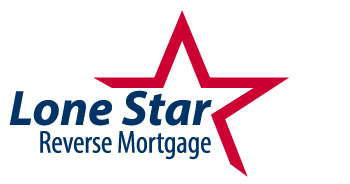
Choosing the Right Reverse Mortgage Lender
Choosing a reverse mortgage lender is a critical step in obtaining a reverse mortgage. You want to ensure you are working with a lender who is not only reputable and trustworthy but also familiar with the specific regulations and requirements in Texas. This is because each state, including Texas, has its own rules and nuances concerning reverse mortgages. Having a lender with a deep understanding of Texas law and the local real estate market can ensure that the process goes smoothly and that you are getting a loan that fully complies with all applicable laws and regulations. Look for lenders who specialize in reverse mortgages and have a strong presence in Texas.
An out-of-state lender may not be as familiar with Texas laws and regulations concerning reverse mortgages. This could potentially lead to issues down the line. For example, they may not be aware of the unique protections Texas offers homeowners, or they may be unfamiliar with local real estate practices. This lack of local expertise could complicate the loan process and possibly result in a loan that does not best meet your needs. Therefore, it is generally advisable to work with a lender who is experienced in originating loans in Texas.
Lone Star Reverse Mortgage, Inc., has been serving Texas homeowners for almost 20 years. We have done over 750 reverse mortgage loans in Texas. Reverse mortgage loans in Texas are all we do.
Please call us today so we can answer all your questions regarding a Reverse Mortgage Loan in Texas. Our number is 972-388-3338.
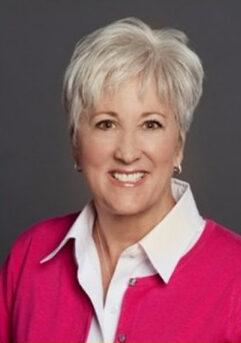
Is Getting A Reverse Mortgage Good Or Bad
Cheryl Culbertson interviews Brenda Bejarano, the owner of Lone Star Reverse Mortgage, to discuss whether "Getting a Reverse Mortgage Is Good or Bad." Click the link below to listen to the audio podcast and learn more about obtaining a reverse mortgage in Texas.
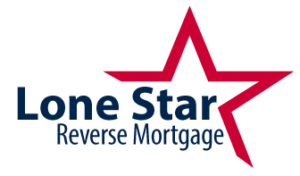
Our happy customers
We take pride in serving our clients with genuine old fashioned personalized service. We go the extra mile to deliver you the best results possible even if a reverse mortgage may not be the best option for you.
I appreciated your honesty and straightforwardness. I knew I could always count on you to answer all my questions. I never had to wait for answers. I could never have done this without all your help. Thanks so much.
I will surely refer anyone who might be in need of a reverse mortgage to you. Thank you for making us feel comfortable in asking our questions and explaining everything so well. You are very professional and helpful. I am glad I made my choice in doing my business with you, thanks to finding your listing in the web. God bless you.
Texas Reverse Mortgage Information
Safety Modifications for Texas Homeowners Aging in Place
Comprehensive Guide: Safety Modifications for Aging in Place As the population ages, the concept...
Unlocking Financial Freedom: The Top 10 Benefits of Reverse Mortgages for Texas Senior Homeowners
As retirement approaches, many Texas seniors find themselves seeking innovative ways to supplement...
Battling the Epidemic of Loneliness in Older Adults
Loneliness has developed into a public health crisis impacting millions of older adults across the...
Steering Clear of Deception: A Senior’s Guide to Fraud Prevention
In the modern era, where digital transactions and online communications have become commonplace,...
How Rising Interest Rates Are Affecting the Use of Reverse Mortgage Loans in Texas
Reverse mortgages are a type of loan that allows homeowners aged 62 and older to access the equity...
Reverse Mortgages: Debunking Myths and Embracing the Truth
In the realm of retirement financial tools, few instruments are as misunderstood as the reverse...
Protecting Your Heirs with a Texas Reverse Mortgage
Texas, the lone star state, has a growing number of senior homeowners considering a financial...
The Impact Of Texas Law On Your Reverse Mortgage
The great state of Texas, recognized for its unique cultural heritage, cowboy hats, and barbecues,...
Local Experience Matters: The Importance of Working with Texas-Based Reverse Mortgage Experts
Texas praised as a model of economic resilience, is a state of unique financial complexities....
The Nuts and Bolts of a Reverse Mortgage in Texas
Reverse mortgages, many times a welcome financial lifeline for senior homeowners, have a unique...
We are ready to serve you
Texas Style Financial Freedom
Call Us Today At – 972-388-3338
Get in touch
Contact Us
Address
Lone Star Reverse Mortgage, Inc.
6105 Volunteer PL
Rockwall, TX 75032
Call us
972-388-3338








